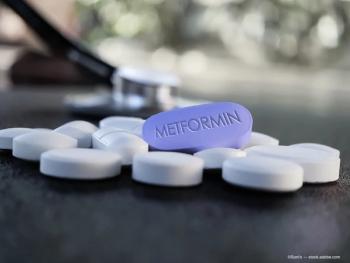
ASRS 2023: 4DMT presents additional positive interim data from intravitreal 4D-150 phase 1/2 PRISM clinical trial in wet AMD
The company noted at the American Society of Retina Specialists meeting in Seattle the phase 2 Dose Expansion (N=50) initial interim efficacy and safety data presentation expected at medical conference in H1 2024.
4D Molecular Therapeutics today announced additional positive interim clinical data from the Phase 1 Dose Exploration stage (N=15) of the 4D-150 Phase 1/2 PRISM clinical trial for patients with wet age-related macular degeneration (wet AMD).
The data were presented today at the 2023 American Society of Retinal Specialists (ASRS) Annual Meeting in Seattle, Washington, by Christine N. Kay, MD, a vitreoretinal surgeon and the director of Electrophysiology, Retinal Genetics, and clinical trials at Vitreoretinal Associates in Gainesville, Florida.
According to the company, 4D-150 is a potentially transformative genetic medicine that utilizes 4DMT’s evolved and customized retinotropic R100 vector, while targeting four VEGF family members. 4D-150 is being developed as a single dose, routine outpatient intravitreal therapy with the goal of reducing treatment burden and maintaining efficacy in patients with wet AMD and diabetic macular edema (DME).
Robert Kim, MD, chief medical officer of 4DMT, said in a news release the company has been happy with results from the trials.
“We are pleased to see continued evidence of a favorable safety profile and clinical activity, including clinically meaningful reductions in anti-VEGF treatment burden at all dose levels of intravitreal 4D-150 in these high anti-VEGF need patients,” Kim said in the release. “In addition, 3 of 4 evaluable patients in the 3E10 vg/eye cohort are now anti-VEGF injection-free at one year and beyond, with up to 80 weeks of follow-up, demonstrating encouraging initial evidence of long-term durability.”
Kim said the company is looking forward to continuing to follow these patients and presenting initial interim Phase 2 Dose Expansion data in H1 2024.
“The results announced today continue to support 4D-150’s favorable overall clinical profile as a potentially transformative durable intravitreal therapeutic in VEGF-driven large market ophthalmologic diseases,” said David Kirn, MD, co-founder and CEO of 4DMT. “We look forward to continuing to build upon 4D-150’s strong profile to date in the randomized Phase 2 stage of the PRISM trial in patients with wet AMD and the Phase 2 SPECTRA trial in patients with DME.”
Kirn added that the company plans on continuing to advance its preclinical large market ophthalmology pipeline, including 4D-175 for geographic atrophy, leveraging the same clinically validated retinotropic R100 vector.”
4D-150 Phase 1 Dose Exploration Interim Data Summary:
- 15 patients received a single intravitreal dose of 4D-150 across three dose cohorts (3E10, 1E10, and 6E9 vg/eye; n=5 each)
- Enrolled participants had a high need for anti-VEGF therapy, with mean annualized injection rates ranging from 8 to 11 across cohorts prior to 4D-150 treatment
- As of the data cutoff date of July 3, 2023, all patients had completed follow-up through at least 36 weeks
- 4D-150 was well tolerated, with no reported Grade ≥1 inflammatory cells and no hypotony, dose-limiting toxicities, or treatment-related serious adverse events
All three doses demonstrated clinical activity in the study, with evidence of a dose response favoring the 3E10 vg/eye dose:
- Data cutoff as of July 3, 2023
- Excludes patients with progressive cataract at time of BCVA measurement:
- Excludes Patient 5 (not Phase 2 BCVA-eligible and not evaluable)
- Mean ±SE of -0.3 ±2.2 when including all patients (n=4). Patient’s BCVA has since improved post-cataract surgery.
cMean ±SE of -0.5 ±2.1 when including all patients (n=10). Patient’s BCVA has since improved post-cataract surgery. - Mean ±SE of -4.6 ±2.9 when including all patients (n=5). Patient’s BCVA has since improved post-cataract surgery.
- Initial durability demonstrated in 3E10 vg/eye dose cohort, with 3 of 4 evaluable patients injection-free beyond 1 year
- First patient in 3E10 vg/kg cohort remains supplemental anti-VEGF injection-free at 80 weeks follow-up (longest on study) (data cutoff July 3, 2023)
- A single patient (1 of 4 evaluable patients in the 3E10 vg/eye cohort) met supplemental injection criterion beyond 36 weeks at a single timepoint. Patient was well controlled on the basis of both BCVA and CST prior to developing a retinal hemorrhage, which has resolved with no significant change from baseline in BCVA (reported as “not related” to the test article)
The company also noted initial interim efficacy data from Phase 2 Dose Expansion expected to be presented at a medical conference in H1 2024
- Expect to provide update regarding Phase 3 pivotal trial plans in Q1 2024 after initial discussion with FDA, which is anticipated in Q4 2023
- Expect to enroll first patient in Phase 2 SPECTRA clinical trial for DME in Q3 2023
A program update for 4D-175 in geographic atrophy is expected later this year.
4D-150 is comprised of the company’s customized and evolved intravitreal vector, R100, and a transgene payload that expresses both aflibercept and a VEGF-C inhibitory RNAi. This dual transgene payload inhibits 4 angiogenic factors that drive wet AMD and DME: VEGF A, B, C and PlGF.
Newsletter
Don’t miss out—get Ophthalmology Times updates on the latest clinical advancements and expert interviews, straight to your inbox.





























